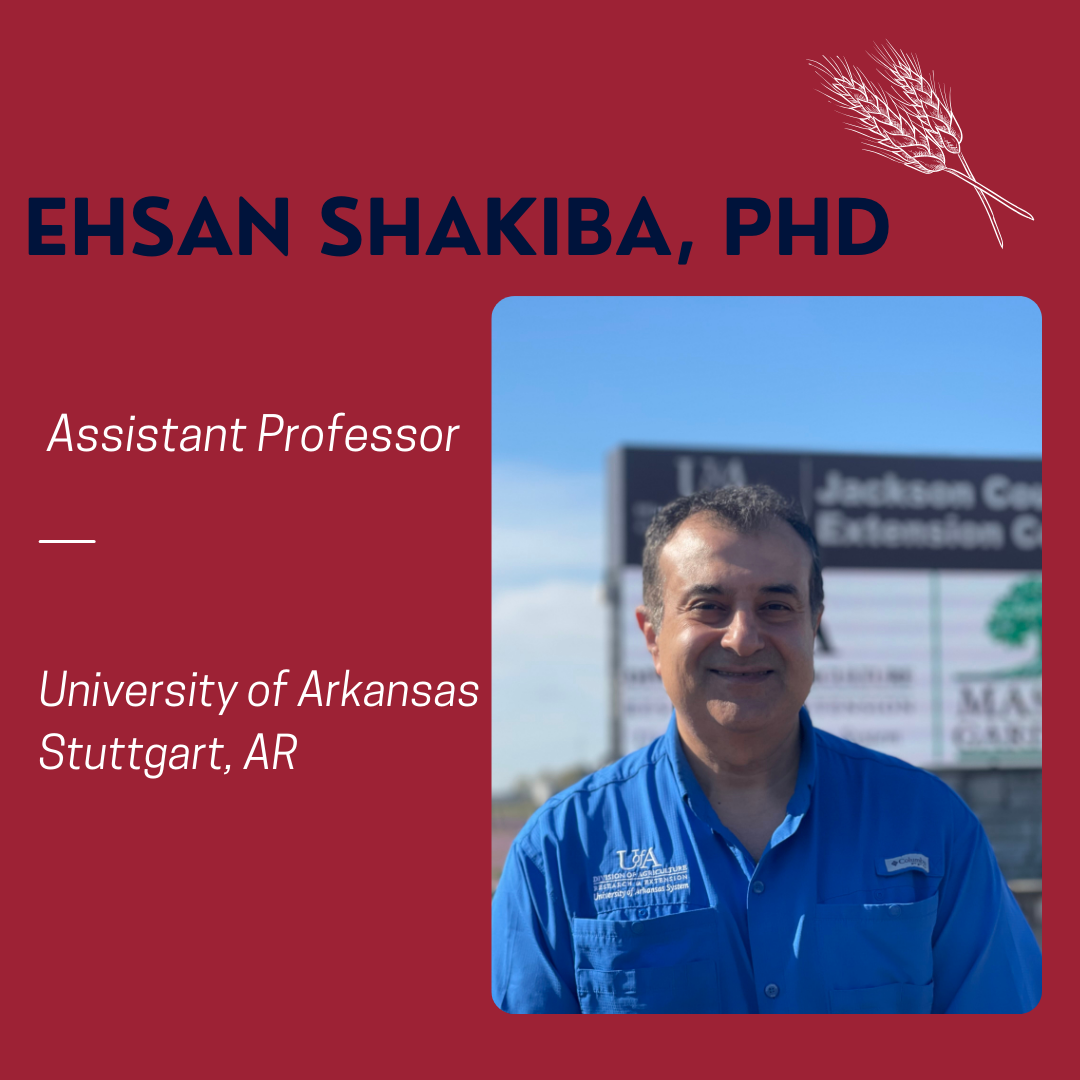Featured Researcher Bio - Ehsan Shakiba 2025

Meet Ehsan Shakiba, an assistant professor of wheat breeding and genetics at the University of Arkansas. Shakiba has been a PI with the USWBSI since 2021. As a plant breeder, he actively works to improve FHB resistance in soft red winter wheat adapted to the southern U.S. through the use of both field and molecular approaches.
A Foundation in Agronomy and Plant Breeding
Many individuals contributed to Shakiba’s interest in plant breeding and he continues to be inspired by the dedication and contributions from others in this discipline. First and foremost, he was inspired by his parents who instilled the foundation for pursuing a higher education. His older brother introduced him to agronomy and this ultimately led him toward wanting to go to school for plant sciences. Shakiba obtained his bachelor of science degree in agronomy and plant breeding and his master of science degree in agronomy from Azad University in Iran. While there, he learned about Gregor Mendel’s work with genetics which sparked his interest and influenced his decision to study genetics further.
Moving to the University of Arkansas, Shakiba completed another master of science degree in plant breeding and genetics where his research focused on plant responses to three major soybean pathogens. Building further on this foundation, he obtained his doctorate degree in plant breeding and genetics where he focused on identifying genes associated with resistance to soybean mosaic virus. He is especially grateful to his advisor, Pengyin Chen, at the University of Arkansas, whose guidance and mentorship were instrumental in shaping his path to becoming a plant breeder. Following the completion of his degrees, Shakiba became a post-doctoral researcher at Virginia Tech and later worked with the USDA-ARS Dale Bumpers National Rice Research Center in the cytogenetics lab.
An Intersection of Practical Breeding with Advanced Genetics
Since joining the USWBSI, Shakiba has had the opportunity to collaborate with others who are committed to advancing FHB research. He’s also had the chance to work closely with other soft winter wheat breeders in the southern U.S. through the SunGrains Consortium. From the time he started as a wheat breeder, he has felt welcome.
As a breeder, he has had the opportunity to perform field evaluations and select material for FHB resistance as part of his USWBSI funded projects. “I truly enjoy combining both phenotypic and genotypic evaluations to identify superior wheat lines with enhanced resistance to Fusarium head blight,” said Shakiba. It’s very rewarding to him to be able to observe lines under disease pressure in the field and then use molecular tools to validate those observations and select the most promising lines. This intersection of practical breeding with advanced genetics is what excites him most about his role as a plant breeder.
A Connection to Curiosity and Hands-on Experience
“My best advice for graduate students and early-career professionals in plant breeding and genetics is to stay curious and open to learning,” said Shakiba. With the field of plant breeding and genetics rapidly evolving, having a strong desire to explore new ideas and technologies allows you to grow and keep moving forward with others.
In addition to that, he recommends those early in their careers gain as much hands-on experience, both in the field and the lab, as possible. Get out in the field and observe how a plant responds to real-world conditions and then take that information and apply it to your research program.
Finally, always be willing to collaborate and build relationships with researchers from other institutions and disciplines. “The connections you make early in your career can lead to valuable collaborations, new insights, and long-term support throughout your professional journey,” adds Shakiba.
For more information about Dr. Ehsan Shakiba's research, visit his faculty profile.
To learn more about others in the FHB community, check out all the previous USWBSI Featured Researchers/Advocates.
